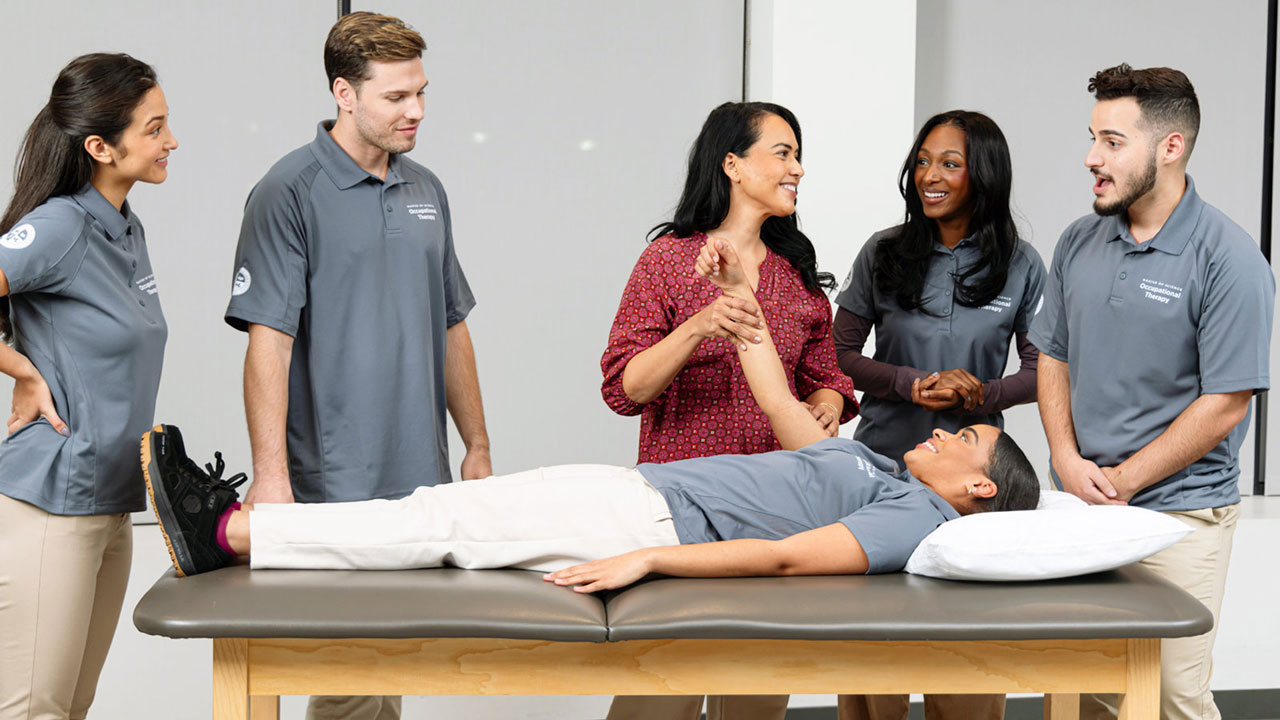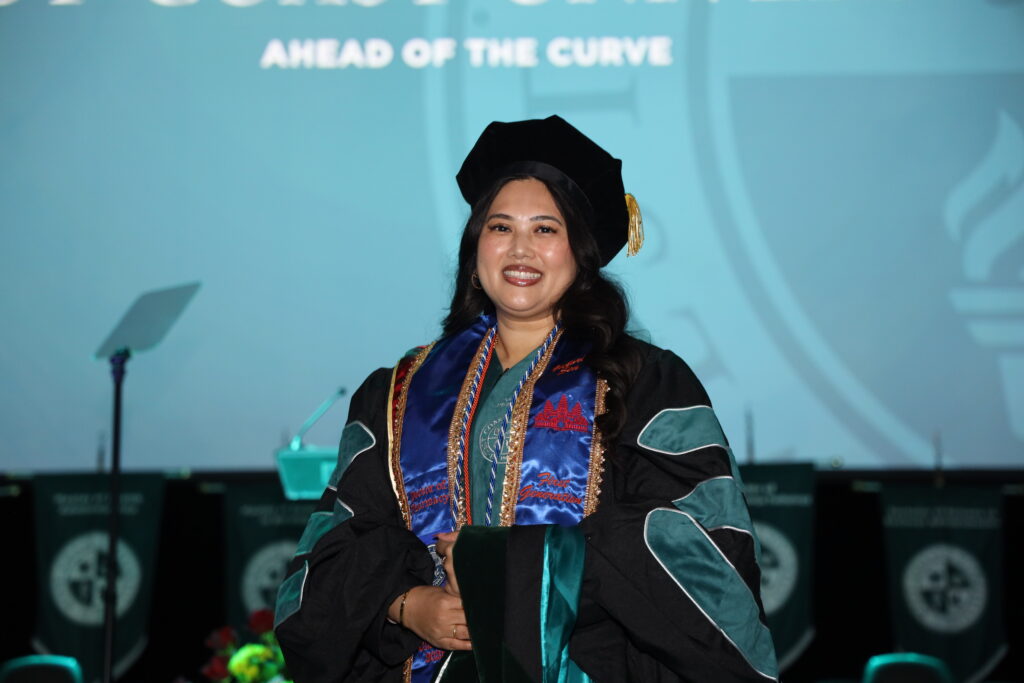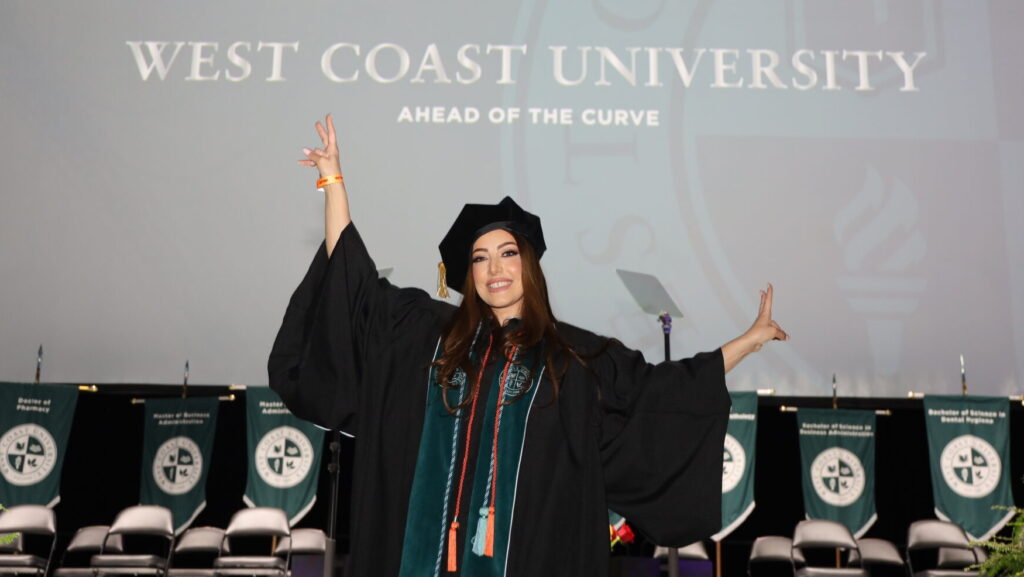If you’re ready to help individuals live healthier, more fulfilling lives, a career in occupational therapy (OT) might be your calling. Whether you’re exploring an Occupational Therapy Masters Program or aiming to earn your OTD degree, California offers pathways to help you reach your professional goals. Here’s what you need to know about the requirements to begin and succeed in this impactful field.
Becoming a Licensed Occupational Therapist in California
To legally practice OT in California, candidates must:
- Complete a program accredited by the Accreditation Council for Occupational Therapy Education (ACOTE)
- Pass the NBCOT (National Board for Certification in Occupational Therapy) exam
- Obtain licensure through the California Board of Occupational Therapy
At West Coast University (WCU), students can pursue either the OTD degree or the Occupational Therapy Masters Program at our Los Angeles-based Center for Graduate Studies—both designed to equip students for licensure and real-world success.
Educational Requirements for OT Programs in California
Step 1: Earn a Bachelor’s Degree
Applicants to both WCU programs must hold a bachelor’s degree from a regionally accredited institution. However, WCU also offers an OTA-to-MSOT pathway for qualified students without a bachelor’s degree.
Step 2: Complete Prerequisite Coursework
For both the MSOT and OTD programs, students must complete prerequisite courses, typically within the last 10 years. Courses include:
- Human Anatomy with Lab
- Human Physiology with Lab
- Statistics
- Lifespan Development
- Abnormal or Behavioral Psychology
- Advanced Writing
- Medical Terminology
- Two courses in the humanities or social sciences
Minimum GPA requirements apply, with most programs seeking a 3.0 or higher.
Fieldwork & Observation Hours
California OT programs require 40–80+ hours of volunteer or observation time under a licensed OT. This experience should span clinical and community-based settings and must be documented for your application.
Required Application Materials
To apply, students should prepare:
- A completed application via OTCAS
- Three letters of recommendation (typically including OTs and academic mentors)
- A personal interview
- Transcripts, proof of English proficiency (if applicable), and prerequisite verification
No GRE is required for WCU’s OTD degree or Occupational Therapy Masters Program—streamlining the admissions process for applicants.
Admission & Academic Requirements for WCU’s MSOT Program
- Duration: 24 months, 96 credits, 6 trimesters
- Format: On-campus learning and 1–2 days of online synchronous classes weekly
- Bachelor’s Degree: Required, or apply via the OTA Pathway
- GPA: 3.0 minimum preferred for last 60 units
- Prerequisites: Must include anatomy, physiology, statistics, psychology, humanities/social sciences, and more
- Observation Hours: 40 minimum in an OT setting
- Recommendation Letters: Three required
- Scholarships: Available, including the Dean’s and Community Leader Scholarships
The Occupational Therapy Masters Program at WCU provides early fieldwork opportunities and mentorship from day one—setting you up for success both in and out of the classroom.
Admission & Academic Requirements for WCU’s OTD Program
- Duration: 32 months, 120 credits, 8 trimesters
- Format: Blended learning with on-campus and online synchronous sessions
- Bachelor’s Degree: Required
- GPA: 3.0 minimum preferred
- Prerequisites: Includes advanced coursework in anatomy, physiology, psychology, and writing
- Observation Hours: Minimum of 40
- Recommendation Letters: Three required
- Capstone & Fieldwork: Features Level II fieldwork and a 14-week capstone project
- Scholarships: Available, including the Dean’s and Community Leader Scholarships
The OTD degree from WCU prepares you for leadership in occupational therapy through advanced clinical experiences, scholarly research, and community-based practice.
After Graduation: Licensure & Career Support
WCU graduates are eligible to sit for the NBCOT exam, after which they can apply for California licensure. Licensure requirements also include:
- Live Scan background check
- California Board of Occupational Therapy application
- 40 hours of continuing education every two years for renewal
From day one, students receive guidance from our dedicated Career Services team and a faculty mentor to help them navigate their professional journey.
Diverse Career Pathways for WCU OT Graduates
Graduates of WCU’s OT programs are prepared to work in a variety of settings, including:
- Hospitals and clinics
- Schools and early intervention centers
- Skilled nursing facilities
- Community-based rehabilitation programs
- Home healthcare agencies
Whether you choose the Occupational Therapy Masters Program or pursue an OTD degree, WCU’s curriculum and mentorship model are designed to help you find your path in this dynamic field.
Take the Next Step Toward a Career in OT
Ready to launch your journey into occupational therapy? At WCU, you’ll gain the hands-on training, personalized mentorship, and professional preparation you need to make a lasting difference in the lives of your clients.
Learn more about our OTD degree
Explore our Occupational Therapy Masters Program
Your career in occupational therapy starts with the right education—and West Coast University is here to guide you every step of the way.
WCU provides career guidance and assistance but cannot guarantee employment. The views and opinions expressed are those of the individuals and do not necessarily reflect the beliefs or position of the school or of any instructor or student.



